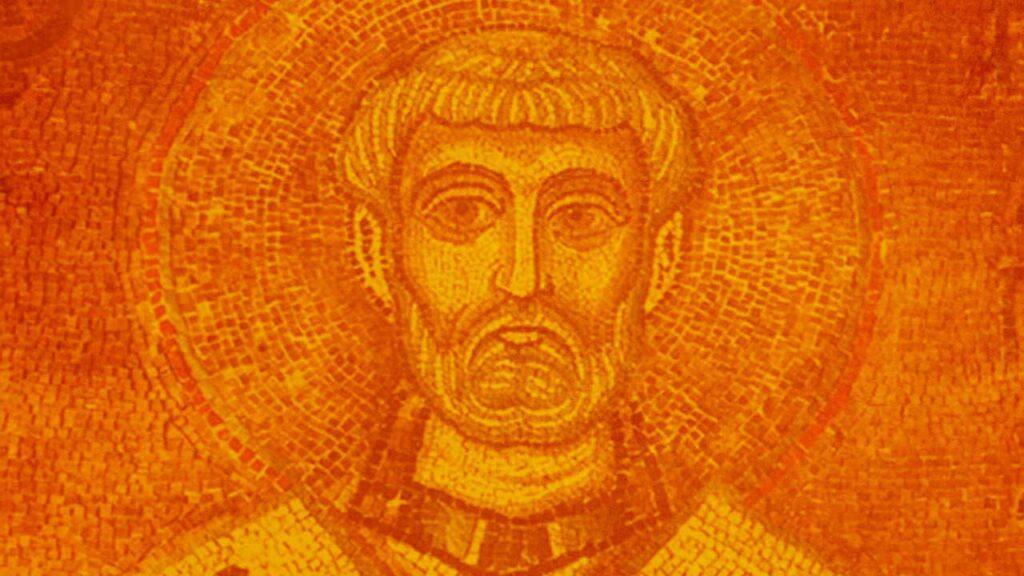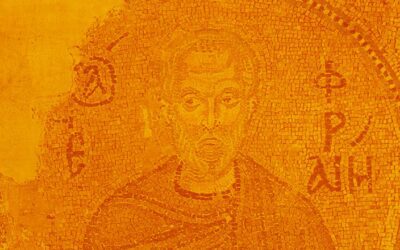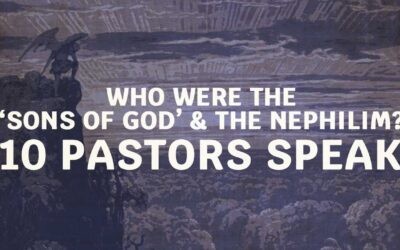Clement of Rome, the attributed 4th bishop of Rome and a key figure in early Christianity, left behind valuable insights that shed light on the enigmatic passage of Genesis 6:1-4 in some of his works.
As an Apostolic Father of the Church, Clement’s writings provide a fascinating perspective on this ancient biblical narrative, although debate is ongoing over the real authorship of some writings attributed to him.
Who was Clement of Rome?

Clement of Rome, also known as Pope Clement I, was consecrated by the Apostle Peter himself. He played a significant role in the church of Rome during the late 1st century.
While little is known about his life, he is listed as the second or third bishop of Rome after Peter, holding office from 88 AD until his death in 99 AD.
Clement’s Interpretation of Genesis 6
Clement touches upon Genesis 6:1-4, presenting a narrative where heavenly spirits, residing in the lowest region of heaven, became disheartened by humanity’s ingratitude towards God. Seeking to convict the ungrateful, these spirits requested to dwell among humans, assuming human form and exposing the covetousness of those who stole their forms.
However, as these heavenly beings inhabited human bodies, they succumbed to lust and engaged in relationships with human women, resulting in a state of defilement and powerlessness. Their celestial essence was diminished, and they could no longer ascend to the heavens. Bound by the constraints of their earthly bodies, they lost their initial purity and descended into a path of impurity.
In Clement’s Recognitions, he retells the story of creation, the sin of the angels and also elaborates on the giant nephilim, alluding to the fact that the Greeks had tales based on the same individuals.
“For of the spirits who inhabit the heaven, the angels who dwell in the lowest region, being grieved at the ingratitude of men to God, asked that they might come into the life of men, that, really becoming men, by more intercourse they might convict those who had acted ungratefully towards Him, and might subject every one to adequate punishment…
But when, having assumed these forms, they convicted as covetous those who stole them, and changed themselves into the nature of men, in order that, living holily, and showing the possibility of so living, they might subject the ungrateful to punishment, yet having become in all respects men, they also partook of human lust, and being brought under its subjection they fell into cohabitation with women; and being involved with them, and sunk into defilement and altogether emptied of their power, were unable to turn back to the first purity of their proper nature, their members turned away from their fiery substance: for the fire itself, being exhausted by the weight of lust, and changed into flesh, they trode the impious path downward. For they themselves, being fettered with bonds of flesh, were constrained and strongly bound; wherefore they have no more been able to ascend into the heavens… “
Clementine Homilies, Homily 8
All things therefore being completed which are in heaven, and in earth, and in the waters, and the human race also having multiplied, in the eighth generation, righteous men, who had lived the life of angels, being allured by the beauty of women, fell into promiscuous and illicit connections with these; and thenceforth acting in all things without discretion, and disorderly, they changed the state of human affairs and the divinely prescribed order of life, so that either by persuasion or force they compelled all men to sin against God their Creator. In the ninth generation are born the giants, so called from of old, not dragon-footed, as the fables of the Greeks relate, but men of immense bodies, whose bones, of enormous size, are still shown in some places for confirmation. But against these the righteous providence of God brought a flood upon the world, that the earth might be purified from their pollution, and every place might be turned into a sea by the destruction of the wicked. Yet there was then found one righteous man, by name Noah, who, being delivered in an ark with his three sons and their wives, became the colonizer of the world after the subsiding of the waters, with those animals and seeds which he had shut up with him.
Recognitions (Clement of Rome)
Continued Debates and Questions
However, it is crucial to acknowledge that even with Clement’s insights, many questions remain unanswered. The passage continues to puzzle both ancient and modern scholars, urging them to delve deeper into its meaning and implications.
It is unfortunate that misinformation and sensationalized content surrounding the topic of the nephilim in Genesis abound in today’s online world. In light of this, it is essential to seek dependable resources and engage in quality research to explore this captivating subject.
This website aims to provide precisely that—a trustworthy repository of searchable data and well-researched materials. By doing so, it endeavors to offer valuable insights into our origins, purpose, and destiny as illuminated by the Bible.






